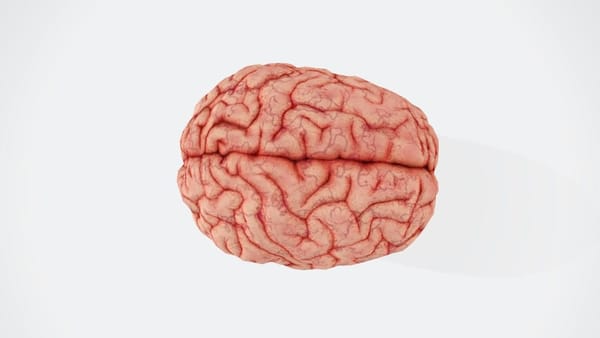The gut-brain axis, a bidirectional communication network linking the enteric and central nervous systems, has emerged as a crucial factor in mental health. Research suggests that the gut microbiome plays a significant role in influencing mood, anxiety, and depression through various mechanisms, including the production of neurotransmitters and regulation of inflammation.
Role of the Vagus Nerve in Gut-Brain Communication
The vagus nerve plays a crucial role in gut-brain communication, serving as a primary conduit for bidirectional signaling between the gastrointestinal tract and the central nervous system. This mixed nerve, composed of 80% afferent and 20% efferent fibers, is a key component of the parasympathetic nervous system and the gut-brain axis[2].
The vagus nerve's afferent fibers are capable of sensing microbiota metabolites in the gut and transmitting this information to the central nervous system[2]. This sensory function allows the brain to receive and integrate signals about the gut's internal environment, including information about nutrient assimilation, metabolism, and the presence of potential pathogens[1].
In the opposite direction, efferent vagal fibers contribute to the "cholinergic anti-inflammatory pathway," which can modulate peripheral inflammation and intestinal permeability[2]. This pathway has important implications for gut health and, by extension, the composition of the gut microbiota. The vagus nerve's ability to influence intestinal inflammation and permeability suggests that it may indirectly affect the gut microbiome, further highlighting its importance in the gut-brain axis[2].
The vagus nerve is also involved in regulating various digestive processes. It conveys sensory information about stomach fullness to the brain and relays motor signals back to the gastrointestinal smooth muscle, helping to modulate muscle movement and aid digestion[3]. This regulatory function extends to the control of food intake, satiety, and energy homeostasis[5].
Recent research has demonstrated that non-invasive stimulation of the vagus nerve can strengthen the communication between the stomach and the brain within minutes[3]. This stimulation has been shown to increase coupling between the stomach and various regions of the brain, including subcortical and cortical areas involved in higher-order cognitive functions[3]. These findings suggest that vagal stimulation could have widespread effects on brain function, potentially influencing goal-directed behavior and decision-making processes.
The vagus nerve's role in gut-brain communication has significant implications for both physical and mental health. Dysregulation of the vagus nerve has been associated with various gastrointestinal disorders, such as inflammatory bowel disease (IBD) and irritable bowel syndrome (IBS), as well as mental health conditions like depression and anxiety[2]. Conversely, targeting the vagus nerve through stimulation techniques has shown promise as a potential treatment for these conditions[2][5].
In conclusion, the vagus nerve serves as a critical link in the gut-brain axis, facilitating complex interactions between the gastrointestinal system, the microbiome, and the central nervous system. Its multifaceted role in sensing gut conditions, modulating inflammation, regulating digestion, and influencing brain function underscores its importance in maintaining overall health and well-being.
Impact of Diet on Gut Microbiome and Mental Health

The diet plays a crucial role in shaping the gut microbiome, which in turn has significant implications for mental health. Research has shown that dietary patterns can modulate the composition and function of gut microbiota, influencing brain health through the gut-brain axis[1].
A healthy diet rich in fiber, polyphenols, and micronutrients has been demonstrated to exert positive effects on gut microbial composition[1]. Specifically, consumption of unprocessed plant foods such as fruits, vegetables, nuts, seeds, and whole grains allows the gut microbiome to thrive[2]. These foods contain prebiotics and other compounds that support the growth of beneficial bacteria.
Conversely, less healthy dietary patterns characterized by high intake of dairy desserts, unhealthy meats, and processed foods have been associated with gut microbiota profiles linked to increased risk of chronic diseases, including mental health disorders[2]. These diets often support gut species associated with elevated blood sugar, cholesterol, and inflammation markers, which are significantly associated with higher risk of various health issues[2].
Studies have identified specific gut microbes associated with mental health conditions. For instance, people with depression were found to have lower levels of bacteria such as *Dialister* and *Coprococcus*[3]. Interestingly, individuals with higher abundance of these bacteria reported better quality of life scores[3].
The impact of diet on mental health via the gut microbiome is further supported by intervention studies. The SMILES trial demonstrated that a dietary improvement intervention for adults with major depression led to significant improvements in depressive symptoms[3]. This suggests that dietary modifications can potentially be used as a therapeutic approach for mental health disorders.
Mechanistically, the gut microbiome influences mental health through various pathways. Gut bacteria produce neurotransmitters and other neuroactive compounds that can affect brain function[1]. For example, certain gut bacteria are involved in the biosynthesis of serotonin, a key neurotransmitter implicated in mood regulation[3]. Additionally, the gut microbiome plays a role in modulating inflammation and the stress response, both of which are implicated in mental health disorders[1][3].
It's important to note that while the connection between diet, gut microbiome, and mental health is becoming increasingly clear, more research is needed to fully elucidate the mechanisms and develop targeted dietary interventions. The complexity of individual variations in gut microbiome composition and response to diet also presents challenges in developing universally applicable dietary recommendations[4].
In conclusion, the growing body of evidence suggests that diet significantly influences mental health through its effects on the gut microbiome. A diet rich in diverse plant-based foods appears to promote a healthy gut microbiome, which in turn may support better mental health outcomes. This underscores the potential of dietary interventions as a complementary approach in the management of mental health disorders.
Probiotics and Their Potential in Treating Mood Disorders
Probiotics have emerged as a promising avenue for treating mood disorders, particularly depression and anxiety, due to their potential to modulate the gut-brain axis. The scientific basis for using probiotics in treating depression is rooted in the microbiota-gut-brain axis (MGBA) mechanisms, which play a role in the pathophysiology of depression[1].
Research suggests that probiotics may help alleviate depressive symptoms through various mechanisms. They can influence the production of neurotransmitters, modulate the stress response system, and reduce neuroinflammation[1]. Probiotics also have the potential to counter genetic elements involved in depression development through strain-specific and epigenetic effects[1].
Clinical studies have shown promising results in using probiotics to improve mood and cognitive function. For instance, a study published in Frontiers in Aging Neuroscience found that Alzheimer's patients who consumed milk containing four probiotic bacteria species for 12 weeks showed improved cognitive function compared to those who drank regular milk[4]. Another small study reported in Gastroenterology demonstrated that women who consumed probiotic-rich yogurt twice daily for four weeks exhibited calmer responses to emotional stimuli and showed reduced activity in brain areas processing internal body sensations[4].
The most widely studied and commercialized probiotic strains for mood disorders are Lactobacillus and Bifidobacterium[1]. These strains are commonly used to treat gastrointestinal issues in the United States and have shown potential in addressing mood disorders[3]. However, it's important to note that probiotic effects can be strain-specific, and what works for one individual may not work for another due to variations in gut microbiota composition[3].
While the potential of probiotics in treating mood disorders is promising, there are several challenges and limitations to consider. The lack of consistency and regulation in probiotic products makes it difficult for consumers to know exactly what they're getting[3]. Additionally, the efficacy of probiotics can vary depending on factors such as the specific strains used, dosage, duration of treatment, and individual patient characteristics[1][5].
It's also crucial to note that while probiotics show promise, they should not be considered a replacement for conventional treatments for severe depression. Current evidence suggests that probiotics may be more suitable as adjunct therapies for major depressive disorder (MDD) or as stand-alone treatments for mild MDD[1].
Despite these challenges, the potential of probiotics in treating mood disorders warrants further investigation. Future research should focus on larger, long-term studies with standardized dosing and strains to determine the generalizability of results[5]. Additionally, exploring the use of probiotics as supplements to conventional antidepressant medication, especially for treatment-resistant depression and anxiety, could yield valuable insights[5].
In conclusion, while probiotics show promise in treating mood disorders by influencing the gut-brain axis, more research is needed to fully understand their efficacy and optimal use. As our understanding of the gut-brain connection grows, probiotics may become an increasingly important tool in the treatment of depression and anxiety, potentially offering a more personalized approach to mental health care.











Member discussion